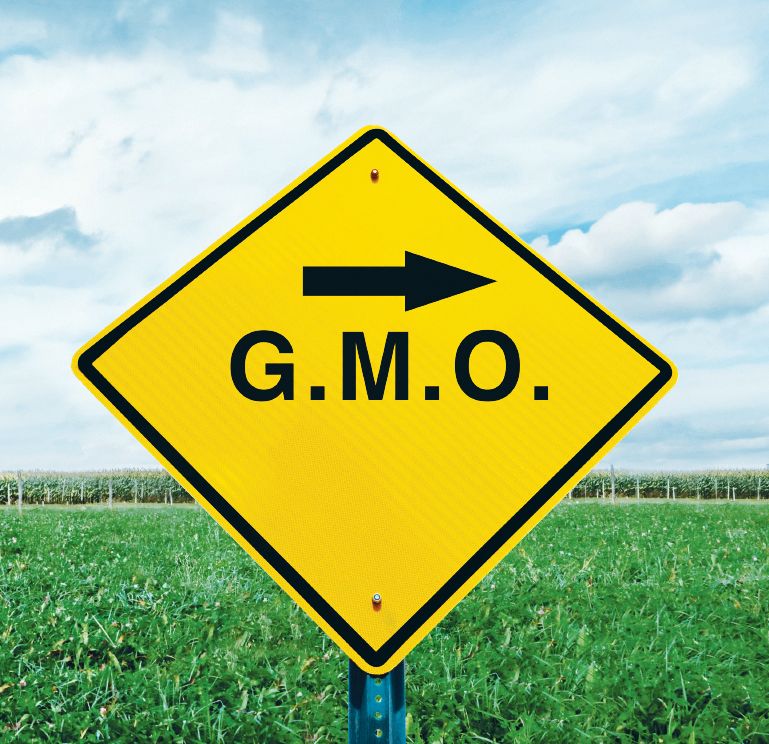GMO-Labeling Laws: Why the Trigger Clause?
Connecticut and Maine's GMO-labeling bills are dormant until other states join in. Why?

On December 12, 2013, Connecticut Governor Dannel P. Malloy signed a bill into law requiring labels on genetically modified food, technically making “The Nutmeg State” the first state to pass such a law. But the bill has a three-part trigger that must be met before it can go into force:
- Four other states must enact similar legislation.
- One of the four states must share a border with Connecticut.
- The combined population of the northeastern states that enact GMO-labeling laws must total more than 20 million, based on the 2010 census.
As the population for the northeastern states-not including New York, Pennsylvania, and New Jersey-only amounts to 10,870,768, if New York, Pennsylvania, and New Jersey don’t pass GMO-labeling laws, it could be decades before Connecticut’s law can become effective. The same goes for Maine, which, following Connecticut, also passed its own GMO-labeling law-but with the same trigger-clause provision.
Editor's note: The one exception so far is Vermont. The state is on its way to passing its own GMO-labeling bill, but unlike Maine and Connecticut, Vermont's GMO-labeling law does not include a trigger clause.
Connecticut and Maine: Victory or Cop-out?
So, is this a classic Pyrrhic victory for supporters of GMO labeling? We asked several experts for their opinions on the trigger-clause provision, starting with Connecticut.
“Absolutely not,” says California Prop 37 proponent and chairman of Citizens for Health, attorney Jim Turner. “The GMO-labeling battle is more a public-awareness than a political struggle. More people now know about the problem and seek GMO labeling than before Connecticut’s vote.”
“I don’t think it is a Pyrrhic victory,” says attorney Justin Prochnow of Greenberg Traurig in Denver, CO. “While the actual implementation may still be a little off in the distance, each time a law gets passed, it helps the cause of the GMO-labeling supporters. Each time one of these state bills passes, they can point to more people supporting the cause. That being said, it seemed like a little bit of a cop-out by Connecticut. Pass something with teeth that will actually go into effect sometime soon if you are going to do it.”
But Michael McGuffin, head of the American Herbal Products Association (Silver Spring, MD), says, “The Connecticut legislation is pragmatic. It acknowledges that interstate commerce impacts regulators, food producers, and consumers.”
“The legislature appears to have acted on the recognition that the state’s population, by itself, is not a sufficiently large critical mass of consumers for food producers to find a separate mandatory labeling law to be economically feasible,” he adds. “In the absence of a reasonably sized market population, consumer choice may be limited by food producers simply choosing to stop doing business in small markets that come to require mandatory labels.”
But Do Consumers Really Want GMO Labeling?
One of the larger questions is whether consumers really want GMO labeling. Results of one survey, part of a recent paper out of New Jersey’s Rutgers University, titled “Public Perceptions of Labeling Genetically Modified Foods” (Hallman WK et al., 2013), may surprise some. The national survey was conducted by GfK Custom Research on 2,442 people between October 23–27, 2013.
When survey respondents were asked, “What information would you like to see on food labels that is not already on there?” most said that no additional information is needed. Only 7% brought up the issue of GMO labeling on its own. A similar percentage, 6%, does want more information about where the food product was grown or processed.
“The answer is that, depending on how the question was asked, I am sure people would say ‘Sure, why not?’” says Prochnow. “But when it comes down to actually doing something about it, they are less driven.”
CA’s Prop 37. Epic Fail?
If there is such purported widespread support for GMO labeling, we asked several experts, why, then, did two of the most notable state efforts either fail (California’s Proposition 37) or not win without restrictive caveats (Connecticut’s current law)?
“Bad strategy,” notes Turner. “The draft in California was marred in a way that caused the natural health constituency to divide. Out-spent. The pro-GMO anti-labeling forces spent 10 times what the pro-GMO labeling forces spent. Too much focus by the pro-GMO labeling team on TV and not enough on social media and grassroots organizing. There were similar problems in Washington State and Connecticut.”
Federal GMO Law?
Will states join Connecticut and Maine's cause, or will they opt to go a different way: the federal route? “Maine seems to want there to be federal GMO labeling, as it is leery of potentially violating the Constitution’s interstate commerce clause,” notes Prochnow.
Would a federal law avoid a whole patch quilt of states’ laws? Yes.But will the fact that the food industry is now threatening to sue states that pass GMO-labeling laws help the fight or hurt it?
“At some point, there is going to be regulation, whether it is disclosure, prohibitions against using certain terms, or other provisions,” notes Prochnow. “I just can’t see the FDA and Congress sitting back while various states pass their own laws. Then again, you would think ‘natural’ [defining the term natural] would find its way onto the FDA’s priority list as well, and we are still waiting.”

HHS announces restructuring plans to consolidate divisions and downsize workforce
Published: March 27th 2025 | Updated: March 27th 2025According to the announcement, the restructuring will save taxpayers $1.8 billion per year by reducing the workforce by 10,000 full-time employees and consolidating the department’s 28 divisions into 15 new divisions.
















